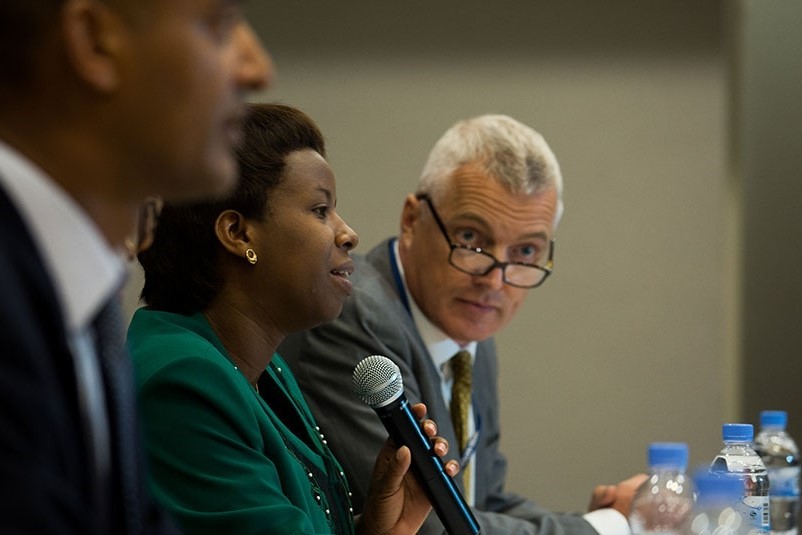Kigali, 23 November 2017: The Minister of State in charge of Water and Energy, Hon. Germaine Kamayirese presided over on behalf of the Government of Rwanda, the launch of the least developed countries Report 2017, focused on Transformational Energy Access.
The report, commissioned by the UN Conference on Trade and Development (UNCTAD), indicates that the world’s 47 Least Developed Countries (LDCs) are falling far behind the rest of the developing world in terms of getting power to homes and businesses. This year’s edition of UNCTAD’s Least Developed Countries Report focuses on transformational energy access for the LDCs, where 62 per cent of people have no access to electricity, compared with 10 per cent across other developing countries.
The report, which is benchmarked on 2014 statistics, shows that by supplying affordable, reliable and abundant energy services to all other economic sectors and industries, the energy industry can help to realise its potential for increasing returns and fostering innovation and productivity, thereby contributing to economic structural transformation.
During the launch of the report, Minister of State in charge of Water and Energy, Hon. Germaine Kamayirese said the Transformational Energy Access is a subject of huge importance in the modern world. “We are on a strong growth path premised on past success, but we have ambitions to achieve even more. The Government is currently finalizing the first National Strategy for Transformation. This is to be the key document in guiding our continued development in the medium term”, mentioned Minister Kamayirese.
Rwanda made tremendous progress at the household level with access to electricity. As per now “off-grid access has been increased from less than 1% two years ago to over 11%. Our target is to achieve universal access by 2024, with 52% on-grid and 48% off-grid”, Minister added.
“However, we must also look beyond households towards Transformational Energy Access. It is through expanding and improving access for productive users that the greater development progress can be made. “Productive use of energy enables industry and commerce to thrive – increasing productivity, creating jobs, building markets and encouraging entrepreneurship. Without transformational energy access, the ambitions that we have will not be met.”
Rwanda targets 100 per cent electricity access for productive users by 2024, up from the current 69 per cent. Access to energy, the minister reiterated, is central to achieving the nation’s development agenda. At the household level, she said, the country made great strides, with access to electricity now at 41 per cent, up from nine per cent in 2010. In particular, off-grid access was increased from less than one per cent two years ago to more than 11 per cent currently.

 ENGL
ENGL KINY
KINY